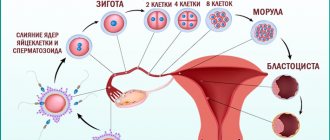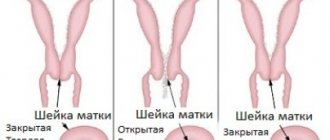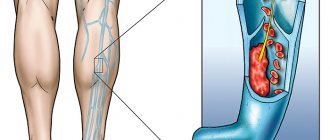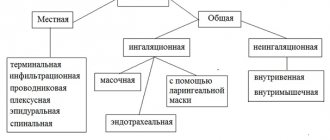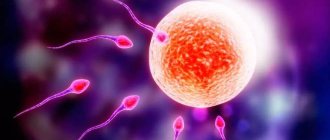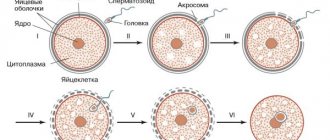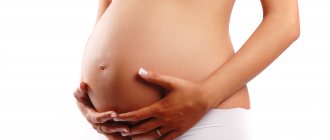Feelings after artificial insemination
The first thing doctors and women think about is the consolidation of the embryo after embryo transfer. This is what rules and restrictions are for. Pregnancy after IVF cannot be checked before two weeks. The consolidation of the fetus is not felt at all.
A woman’s well-being often remains the same. Sometimes with IVF after a transplant, the following is possible.
- General malaise, nausea, pain in the lower abdomen. This is often a consequence of medications taken. Medication is necessary for support, but symptoms should be reported to a healthcare professional.
- Dizziness, lethargy. As a rule, they are not deviations. This is a normal reaction of the body to the procedures experienced. The correct regimen and medical recommendations can improve the condition.
Complications after embryo transfer
After transfer, the embryo attaches to the uterus. If a woman has:
- breasts swell;
- slightly stretches in the lower abdomen;
- basal body temperature increased,
then you need to behave extremely carefully, not overwork, listen to your body. Most likely, the hCG test will show a positive result.
If a woman has:
- the body swells;
- nausea or vomiting;
- severe stomach pain;
- pull on the ovaries
then, most likely, she has OHSS, so you should drink fluids of at least 3 liters per day and seek advice from your fertility specialist.
It happens that before the hCG test during embryo transfer, women experience severe tingling pain in the lower abdomen. In some cases it comes to the ambulance. Doctors recommend using Papaverine suppositories (up to 6 pieces per day).
It is necessary to continue to lead a calm lifestyle, drink green tea, rose hip decoction, fruit juice and juices. If the pain continues, consult a doctor.
USEFUL INFORMATION: Is it true that children born after IVF are infertile?
If spotting appears, you need to know that it can be caused both by taking hormones and by embryo transfer. That is, this may be one of the symptoms of implantation or miscarriage, so you should immediately contact the clinic.
A positive pregnancy test during IVF is a precursor to future changes: toxicosis, drowsiness, sensitivity to aromas and odors that are stronger than during natural fertilization.
Changes at the beginning of pregnancy
It has long been believed that when an embryo is implanted, the immune system prevents the fetus from attaching and developing. Conclusions were made, for example, based on a blood test. In case of unsuccessful pregnancy, antibodies are detected in the samples. These are killer compounds. They get rid of everything that the body considers harmful and foreign.
Many techniques are based on immune suppression. In the event of a possible conflict with the mother's body, the fetus can be preserved. Although recently it has been established that not everything is so simple. For example, local immunity, on the contrary, needs to be stimulated. Discoveries are coming that will increase the effectiveness of IVF.
There are signs that suggest pregnancy. Some of them are detected after two weeks, others earlier:
- nausea, headache - may appear on days 2–7;
- drowsiness, weakness - 2–8;
- the mammary glands become denser, enlarge, discomfort occurs - 3–8;
- food preferences change, women suffer from constipation, accumulation of gases in the intestines, urination becomes more frequent - about two weeks;
- nipples darken, there is vaginal discharge - after 14 days;
- after 1–3 months you can detect a line between the pubis and the navel.
Discharge after embryo transfer is a good sign if not:
- smell;
- itching;
- temperature.
They may indicate consolidation of the fetus. However, on the contrary, they indicate its detachment if:
- smell bad;
- intense;
- grayish or greenish in color.
The listed signs are auxiliary. Sometimes they only mean that menstruation is approaching. Accurate evidence of pregnancy, that is, the development of the embryo:
- delay of menstruation;
- test results, preferably laboratory ones;
- Ultrasound.
Unsuccessful IVF: main reasons
- The main reason why IVF failures occur is the low quality of the resulting embryos. In order for the procedure to be successful, it is necessary to place into the woman’s uterine cavity those embryos that consist of 6-8 cells and also have high division rates. Poor-quality embryos can be obtained in situations where the embryologist’s qualifications are insufficient, or there are disturbances in male and female reproductive cells (eggs, sperm).
- Unsuccessful IVF can occur if there is any damage to the inner layer of the uterus (endometrium). Normally, for high-quality and successful attachment of the embryo in the uterine cavity, the presence of endometrium with a thickness of 7-14 millimeters is necessary. Most often, endometrial pathology, which is determined after unsuccessful IVF, is chronic endometritis, polyps, hyperplasia or thinning of the endometrium. All these disorders are quite easily diagnosed using ultrasound (ultrasound).
- Unsuccessful IVF may be a consequence of obstruction of the patient’s fallopian tubes, as well as the accumulation of fluid in them. This is a fairly serious pathology that requires treatment, most often surgically.
- Genetic disorders in one or both spouses can provoke a situation where IVF is unsuccessful.
- The presence of special antibodies in a woman’s body that prevent pregnancy from occurring even through artificial insemination.
- Hormonal imbalance in a woman's body. It has been scientifically proven that the entire process of egg maturation, their release from the ovaries during ovulation, fertilization, attachment (implantation) in the uterus and subsequent pregnancy are regulated by hormones. This means that any hormonal imbalance disrupts the integrity of this chain and leads to IVF failure.
- The presence of bad habits of both spouses. The harmful effects of alcohol, nicotine, and narcotic substances have been proven for a long time and are not subject to any doubt.
- Age factor. The older the woman undergoing IVF is, the higher the risk that the IVF will fail. The same applies to the partner whose sperm is used to fertilize the egg.
- Obesity is a problem that has a serious overall impact on a woman's health. It may be the reason that IVF is unsuccessful.
- Polycystic changes in the ovaries, leading to the fact that the quality of eggs decreases and it is much more difficult for sperm to fertilize them.
- Ovarian depletion, which occurs for some reason and leads to a decrease in follicular reserve. If a patient has such a pathology, it is very difficult to obtain high-quality eggs in the required quantity.
- Infectious diseases such as herpes, mycoplasmosis, chlamydia, cytomegalovirus infection, Epstein-Bar infection, hepatitis B, C and others increase the likelihood that IVF will fail.
- Adhesive processes that exist in a woman’s pelvis also lead to unsuccessful IVF attempts.
- The presence of acquired or congenital anomalies of the uterine structure in a patient (bicornuate or saddle-shaped uterus, uterine fibroids, etc.) can be a serious obstacle to pregnancy.
- Unsuccessful IVF can be a consequence of chronic somatic diseases of the gastrointestinal tract, cardiovascular system, respiratory system, as well as other organs and systems of the woman’s body.
In the case where even repeated IVF is unsuccessful, you need to more carefully look for the reason that leads to this.
Changes in the cervix in early pregnancy
The cervix prevents the fetus from coming out prematurely. This is a kind of limiting ring. Sometimes she fails to cope with her role, and a miscarriage or early birth may occur. The changed neck becomes looser and shortens.
Read also Signs of pregnancy after IVF
Main causes of pathology (ICN):
- infections, inflammation;
- erosion;
- hormonal disorders;
- injuries and others.
Most often there are no symptoms. If there is, then it depends on the period. In the first trimester this is bleeding. Usually not accompanied by pain, but discomfort is possible.
After IVF, the patient is carefully examined, because pathology can jeopardize all efforts. Possible problems still occur.
- The doctor did not conduct a classical examination to protect against infection. As a result, the violation was found late.
- Even with high-quality diagnostics, it is not always established. If suspected, an ultrasound is often performed.
You can fight this. In the early stages you will need:
- bed rest;
- protect yourself from stress and strain;
- surgery with anesthesia: stitches on the cervix (not painful);
- medications, including hormonal ones.
Features of observation by a doctor
Due to the complexity of the procedure and the risk of pregnancy pathology, the woman is under the close supervision of a specialist before IVF and throughout the entire period of bearing the child. Before in vitro fertilization, it is necessary to exclude a number of diseases in the organs of the reproductive system - uterine fibroids, ovarian cysts. They may be the reason why the embryo does not take root.
If the woman’s age exceeds 40-45 years before IVF, the level of anti-Mullerian hormone is examined. This is a substance that is produced by ovarian cells before menopause. Any deviations from the norm indicate dysfunction of the woman’s reproductive system and serious health problems. Normally, AMH in the fairer sex is 1-2.5 ng/ml. Such values give positive results with IVF.
In the first trimester, the doctor conducts an in-depth diagnosis of the pregnant woman’s health status. In the early stages, an ultrasound scan is required to confirm the fact that the fertilized egg has taken root, to find out its location in the uterus or outside its cavity, and to refute anembryony.
Most often, due to advanced age or other pathology, women give birth by cesarean section at 37-38 weeks of gestation. Therefore, the doctor monitors all blood clotting indicators to prevent blood clots or massive blood loss during childbirth.
Health monitoring
During the first three weeks, the woman undergoes regular diagnostics. This is necessary to monitor the condition and clarify the rules of behavior after replanting. After two weeks, blood is collected for hCG to establish pregnancy, and after three weeks, the condition is clarified using ultrasound.
Behavior after embryo transfer during IVF must be correct. This is a necessary condition for preserving the fetus. Your doctor will advise you on how to behave after the transfer, taking into account the characteristics of your body. There are also a number of general rules.
- The first time after replanting is to reduce any loads to a minimum. You should refrain from even doing your usual housework.
- Stop sexual intercourse. The deadline is determined individually.
- Monitor your emotions. Try to maintain a calm and positive psychological state.
- Avoid smoking and alcohol.
- Take as few hot baths as possible.
- Measure basal temperature. It should not exceed 37 C.
- Do everything possible to avoid infection or virus. Contact with carriers must be limited.
- Spend less time at the computer.
What tests need to be taken before starting an in vitro fertilization program?
During preparation for the in vitro fertilization program, you will need the following tests:
Tests for a man and a woman:
- Blood type and Rh factor
- AIDS
- RW (Syphilis)
- Hepatitis B
- Hepatitis C
- Fluorogram
- Blood karyotype
(The results of these tests are valid for different periods of time. If your tests have already expired, you will need to take them again)
Tests and examination for women:
- Blood test for hormones (“given” on an empty stomach on days 3-6 or 22-24 of the menstrual cycle) FSH
- LH
- Prolactin
- Testosterone
- Estradiol
- Progesterone
- T3
- T4
- TSH
- DGA-S
- Insulin
- Cortisol
- AMG
- 17-OHP
- chlamydia
(Infection tests are valid for 3 months. If your tests have already expired, you will need to renew them.)
- You also need to submit:
clinical and biochemical blood test,
- general urine analysis
- blood clotting test.
(The results of these tests are valid for 1 month. If your tests have already passed their expiration date, you will need to renew them.)
- During the examination you will also need to do
electrocardiogram,
- cytological examination of the cervix (smear for atypical cells)
In the process of preparing for pregnancy, a woman will definitely need to consult with a therapist to ensure that there are no contraindications to pregnancy.
Tests and examinations for men:
- For men, in addition to blood tests for:
Blood type and Rh factor
- AIDS
- RW (Syphilis)
- Hepatitis B
- Hepatitis C
It is this analysis that will largely solve the question of a man’s “fertility.” A spermogram may include not only standard quantitative and qualitative indicators, but also:
- Sperm test (study of flotation ability and preservation of motility in vitro)
- Determination of leukocyte content in semen
- Detection of antisperm antibodies (MAR test)
- Detection of infections using PCR
- Examination of a stained smear with precise determination of morphology
- Men also need to take a blood test for hormones (“Surrendered” any day strictly on an empty stomach) - according to indications.
FSH
- LH
- Prolactin
- Testosterone
- Estradiol
- T3
- T4
- TSH
- DGA-S
- Insulin
How should you prepare for the two most important IVF procedures: egg retrieval and embryo transfer?
On the day of follicle puncture, a woman is strictly forbidden to take any food or drink liquid from a certain time, which only a doctor will tell you for sure, taking into account the time of puncture. The man will be invited to the Clinic about an hour and a half later on the same day. By this time, the woman’s eggs will be ready for fertilization by her husband’s sperm. The puncture or collection of eggs from a woman’s body at the Clinic occurs in the morning. You will need to take a robe, T-shirt, socks and slippers with you. Cells are obtained under short-term anesthesia. Its duration does not exceed 2-15 minutes, which is quite enough to extract eggs. Before leaving the Clinic, you will need to obtain written recommendations from your attending physician.
Before the puncture, a man is recommended to abstain from sexual activity and alcohol for 1-2 days , unless other periods of abstinence and special preparation are prescribed by the attending physician.
On the day of puncture of the follicles of the wife, the husband should wash the penis (especially the head) in the morning with baby or other soap, preferably without strong aromatic additives. Wear clean underwear. When collecting sperm in a special sterile container marked with your last name, first name, patronymic, it is advisable not to touch its inner surface. If part of the ejaculate was “lost” during sperm donation, you should definitely inform your doctor about this.
On the day of embryo transfer, a woman does not need to follow the same strict regime. It is allowed to eat and drink. You will also need to take a robe, T-shirt, socks and slippers with you.
Is egg puncture and embryo transfer performed on weekends and holidays?
At the Clinic, egg puncture and embryo transfer are carried out when the patient needs it. Weekends and holidays do not affect the implementation of these procedures in any way. If the puncture or egg transfer coincides with a weekend, then your doctor on duty, as well as all medical staff, will definitely be present at the Clinic.
How can I improve my husband's sperm count?
Firstly, one cannot judge the ability to fertilize based on one spermogram. Sperm is accurately assessed in the presence of several spermograms taken after 3-5 days of abstinence from sexual activity and alcohol. Increasing the abstinence interval contributes to an increase in sperm count and sperm concentration, but at the same time leads to an increase in pathological forms and a decrease in motility. Recommendations: it is necessary to eliminate industrial and household harmful factors that can have a negative impact on the male reproductive system, establish a normal rhythm of work and rest, adequate nutrition, provide treatment for concomitant diseases, and establish the correct rhythm of sexual life. Industrial hazards primarily include ionizing radiation, high temperature, for example when working in hot shops, vibration, toxic substances such as hydrocarbons and heavy metals; household ones - smoking, alcohol, drugs, sauna abuse. It is useful to do physical exercises daily with an emphasis on exercises that improve the functioning of the pelvic and abdominal muscles.
Is it possible to have sex during IVF treatment?
I guess, yes. But in the last stages of treatment, before the puncture, it is advisable to abstain from sex for 3-4 days. This is necessary to ensure that spontaneous ovulation does not occur due to mechanical influences.
How long does the entire IVF treatment last?
On average, the duration of IVF treatment is about a month. During this month, you will need to regularly visit the Clinic for ultrasound monitoring of follicle growth and hormonal tests. You will need to agree on the exact time of your visit with the Clinic reception.
There are two types of IVF programs: short and long protocol. How do these programs differ, and what are the indications for choosing a particular program?
Hormonal stimulation of the ovaries during the IVF treatment cycle is carried out to obtain several mature eggs at once during one menstrual cycle. This allows you to obtain several embryos, select the best ones for transfer into a woman’s uterus and increase the likelihood of pregnancy in an IVF program. In some cases, a scheme is used to obtain one follicle in a natural cycle.
The most commonly used are “short”, “super-long” and “long” IVF treatment protocols. The protocol is called long because it begins on the 21st day of the menstrual cycle preceding stimulation. First, a GnRH analogue is administered. To temporarily block the functioning of your own body, you need to administer it daily for at least 15 days or one injection of a large dose of the drug. After blockade of the pituitary gland is achieved, menstruation begins, and from the 2-3rd day of it, stimulation with drugs containing FSH begins.
When stimulation begins on days 2-3 of the menstrual cycle through daily administration of drugs containing FSH, the protocol is called “short”.
It is very important that patients strictly follow doctors' instructions. Violations can lead to complications, so regular hormonal and ultrasound monitoring is carried out. The choice of one or another regimen depends only on the condition of the body and is chosen by the attending physician.
Is it possible to combine IVF treatment with work?
Yes, you can. It is not at all necessary to take a vacation during IVF treatment. Although of course this is by no means contraindicated. You will only need to come to the Clinic once every two or three days for an appointment with a fertility specialist. Moreover, the reception can take place both in the morning and in the evening. It all depends on the schedule. On the days of egg puncture and embryo transfer, you will need to stay in the Clinic for approximately 2-3 hours.
How is payment for the IVF procedure made?
At the Clinic, payment for the IVF procedure is made before the puncture of the follicles. Payment is made both in cash and by bank transfer. Accounting documents are issued for all payments.
What foods should you eat for successful IVF?
After embryo transfer occurs during IVF, a special diet is prescribed. It helps strengthen the body and avoid slagging. Eating incorrectly leads to problems, usually constipation. You should not push hard or do enemas after the IVF procedure. Therefore, the doctor selects a diet and sometimes a laxative.
In the post-transfer period, the following are usually accepted:
- light soups from once a day;
- fresh fruits and vegetables (in moderation);
- drinks: compotes, green tea, natural juices, but not sour, not too sweet;
- water - clean, without gas: at least 1.5 liters per day;
- milk;
- Protein-rich foods.
You need to strive to ensure that your nutrition is correct, as sometimes this is crucial. You will have to give up a number of products:
- spicy, fatty, too salty;
- coffee, black tea;
- alcohol;
- legumes;
- canned food;
- sweets;
- causing gas, for example, from cabbage, onions;
- smoked meats;
- sausages;
- suspicious fruits, unnatural juices (chemicals);
- mushrooms and some others.
Read also: Discharge after IVF
Preparing a man for IVF
The problem of conception today is quite acute; not only women, but also men suffer from various disorders. One of the methods of conception is the IVF procedure, i.e. artificial insemination, when a pre-fertilized egg is introduced into a woman’s body. But such a procedure requires preparation; the woman and man must undergo tests prescribed by the doctor. The preparatory period is important for both spouses; you will have to choose the right diet, moderate physical activity, and give up alcohol.
Interesting: Who had back pain during pregnancy?
Physical activity
Another important question after embryo transfer is how to behave in relation to physical activity. Here, too, there are rules and they depend on the period.
- Immediately after the procedure, you need to take a horizontal position. You need to lie quietly after replanting for about 1–2 hours. You should make yourself more comfortable. It is forbidden to put your hands behind your head and go to the toilet at this time.
- The first day you need to be especially careful. A calm environment is required. You are allowed to leave bed for half an hour and go for a walk.
- You can sleep in any position only after 5 days.
- Bed rest is necessary for another 10 days. Any physical activity is prohibited.
- You should defecate carefully, without strong efforts. If difficulties arise, a woman should use a laxative according to the regimen determined by the doctor.
- Do not lift more than 2 kg.
- Abstain from sex until your doctor allows it.
- To walk outside. It is worth choosing quiet places where there are fewer people. Public ones should be avoided. Here you can easily catch an infection, especially with weakened IVF immunity.
- Don't drive.
- Do not go to the bathhouse or sauna. It is better to postpone traveling to sunny countries, especially by plane.
- Special attention to sleep. Although lying down too much is undesirable: the blood stagnates. It is necessary to move, but minimally. Walks should not be long or tiring. The regimen after IVF is especially important to follow in the first three weeks.
Features of intimate life after embryo transfer
If a woman is 100% confident in her partner, she can have sex without a condom. If in doubt, it is better to force him to use protection to avoid infection with various STDs. Here everyone has their own situation, and they can be very different.
Special attention should be paid to the positions and nature of sex. It shouldn't be tough. Even if the transplantation was successful and pregnancy occurred, the woman is very vulnerable, especially in the first trimester. Caution should be exercised.
Family relationships
Many women wonder what they are allowed to do after IVF. Some are even afraid to laugh. The girl must remember the restrictions. Failure to do any of them can put everything at risk. Although the lifestyle after the transfer remains close to the usual.
Many people wonder what to do after IVF, what is the correct behavior and what a girl should do. Family relationships should not suffer. A woman does small, light housework. Correct behavior on the part of your spouse is very important to maintain a positive attitude. You need to try to remain calm, devote more time to your favorite activities: watching movies, conversations, knitting, reading and others. Sex without a doctor's permission is prohibited.
Some find it difficult to stay at home. This causes psychological difficulties, which is undesirable. It is possible to leave your home, including going to work. The main thing is that the instructions are followed, there is no discomfort, much less overload.
How to behave after IVF - tips for a healthy lifestyle
Upon completion of in vitro fertilization, the woman faces a new period, during which certain restrictions with a special regime appear. IVF sometimes results in an ectopic pregnancy, a frozen pregnancy, or a spontaneous abortion.
To prevent such consequences, doctors recommend following simple rules:
- For about 2 weeks, try to maintain a calm pace of life, giving up sports or even light physical activity.
- Limit contact with sick people.
- Take prescribed medications and measure your basal temperature.
- Stick to a diet: food should include the necessary substances. It will be necessary to remove foods that cause constipation or bloating. Drink enough water.
- Avoid any stressful situations.
- Monitor your own well-being carefully.
- From 8 to 12 weeks of gestation, try to register with a doctor.
Sleeping mode
Almost any woman who has undergone in vitro fertilization is concerned with the question: how to sleep properly after embryo implantation? When choosing a position, the expectant mother should be guided only by the comfort of the position taken. Some doctors recommend avoiding the prone position, but there is no scientific basis for this prohibition.
Many patients complain that after in vitro fertilization they constantly want to sleep. If possible, try to take a short nap during the day.
Trips
When a woman drives a car, it is better to refrain from driving immediately after embryo implantation. If the patient undergoes IVF in another city, it is advisable to return home by car after 5 days.
As for air travel, doctors have a negative attitude towards this type of transport and recommend refraining from using it after in vitro fertilization. It is not advisable to fly at sea in the early stages of pregnancy; it is better to postpone the trip until the 22nd week. If you want to fly to a resort, you should choose a country that is nearby and has a mild climate.
Doctors are wary of railway transport: there are large crowds of passengers on trains, there is no hygiene and there is strong rolling motion during movement. All these factors adversely affect the expectant mother with an embryo, so it is better to refuse railway transport.
Work and family
After in vitro fertilization, avoid visiting places with a lot of people - cinemas, supermarkets, markets, concerts. The ban is explained by the threat of infection with viral diseases, and during embryo transfer, the woman’s defenses are not active enough.
The embryo may not attach due to a weakened immune system, and the long-awaited pregnancy will not happen. When the fact of implantation of the fertilized egg is confirmed, the ban on visiting public places is lifted.
You don't have to worry about whether you can go to work or not. In the first days after embryo transfer, the patient is given sick leave. Most often, in vitro fertilization does not change the usual way of life. However, physical activity is minimal to prevent spontaneous miscarriage.
Sex life
Intimate relationships during in vitro fertilization cease for some time. The timing is individual and depends on the patient’s condition and the methods of the attending physician. At first, especially in the first 24 hours, you will definitely have to give up intimacy. Inappropriate impact on the stomach should be excluded.
Some doctors are of the opinion that after a short period after the transplantation, sexual relations should definitely be resumed. Moreover, activity is even encouraged, since when excited, hormones are released that help conception. Although this is debatable. In most cases, it is recommended to be patient: more often, sex is prohibited until 14 days after replantation or even until the 12th week of pregnancy.
Read also HCG level after IVF
If there was cryotransfer, the restrictions are not so strict. Replanting takes place in conditions that are closer to natural. However, it is better to play it safe, especially if there are pathologies: GSY, ICN. The risk of ovarian torsion, rupture of ovarian tissue (apoplexy) or miscarriage is very high. Even successful implantation may not bring results, and all efforts will be in vain.
What medications to take
To prepare for pregnancy under the IVF program, Proginova is used. What is it prescribed for? The medication contains synthetic estradiol, which compensates for the lack of female sex hormones. The medicine does not suppress ovulation in the cycle and has a small number of side effects.
Despite the successful implantation of the embryo during in vitro fertilization, there is no complete guarantee that the pregnancy will continue to its due date. In order to prevent miscarriage during IVF, the doctor prescribes progesterone support. It is used from the day of oocyte puncture until the onset of 12-14 weeks of gestation. The most commonly used are Utrozhestan, Duphaston, and Crinon.
In case of increased blood clotting parameters - fibrinogen, D-dimer, RFMK - low molecular weight heparin is prescribed - Fraxiparine, Clexane.
Rules for the male half
After the embryo has been implanted into the partner, the man should also be careful. Although participation is no longer necessary biologically, much still depends on it. A man is able to support at a crucial moment and increase the chances of success.
- Establish the psychological climate. Try to bring more positivity, sometimes tolerate a woman’s unbalanced behavior caused by stress or illness.
- Take on some of the household responsibilities.
- If necessary, ensure prompt medical attention.
- Deliver medications and groceries on time.
There are some things he should not do, as the consequences can be disastrous for the pregnancy.
- Disturb the daily routine, the partner’s regime. For example, going to bed late. You should not seduce a woman with tasty but unhealthy food or anything else.
- Take your own health lightly and not monitor your social circle. Infections brought by it can play a decisive role.
Sedatives
Medical recommendations after replanting must be strictly followed. Usually, medications are prescribed to help the fetus gain a foothold and then develop normally: with progesterone and others. The importance of emotional state should also not be underestimated. Stress can lead to serious health consequences and termination of pregnancy.
A woman does not need to prescribe herself a sedative. As a last resort, you should limit yourself to valerian or motherwort infusion. All remedies, even those that seem harmless at first glance, must be agreed upon with a doctor. For example, some decoctions from traditional medicine can sometimes lead to miscarriage. It is necessary to clarify about NO-SHPy and any other drug.
Some simple remedies can help you relax and calm your nerves:
- green tea;
- rosehip decoction;
- juices
Can I take a sedative?
When a woman goes through in vitro fertilization, she experiences extreme psychological stress. The expectant mother is worried whether the pregnancy will end successfully and whether IVF will affect the baby.
Doctors allow the use of sedative herbal medications - Motherwort, Valerian root. Potent medications are prescribed only if there are serious indications, as they can affect the embryo.
To relieve emotional stress, experts recommend brewing herbal tea and massaging the scalp rather than using pills.
Self-satisfaction
Masturbation in the first days after replanting is prohibited. You should remain careful, as during this period everything hangs by a thread.
Further recommendations are generally the same as for intimacy with a partner. The only peculiarity, apparently, is that there is less risk associated with sudden movements, as well as infections.
After conception, self-satisfaction is allowed. However, sometimes this leads to increased uterine tone and other adverse consequences. The state of health and the course of pregnancy vary. In each specific case, you need to check with your doctor.
After the main IVF procedures, you should not relax. Although the main difficulties are already behind us, we need to finish what we started. It is important not to forget how much has already been done, and most importantly, why. Only a doctor’s recommendations and your own discipline will help you have a child.
Necessary tests for men and women before IVF
To prepare for IVF, it is necessary to undergo numerous tests; they are specific to men and women. All of them help to accurately determine the level of health; if there are any obstacles to fertilization, then such studies will show them immediately.
Women are prescribed the following tests:
- flora smears (including to identify fungi);
- general urine test;
- bacteriological culture, which is taken from the cervical canal;
- Clinical blood test;
- blood biochemistry, which includes tests for cholesterol, urea, protein, creatinine, electrolytes (chlorine, sodium, potassium);
- hemostasiogram;
- blood RW;
- tests for hepatitis (B, C);
- HbsAg;
- blood for HIV;
- smear for oncocytology;
- tests for rubella, genital herpes;
- Separate testing is carried out for chlamydia, mycoplasma, and ureaplasmosis;
- A hormonal test is required.
An examination is also carried out by a therapist, ultrasound examination, mammography, colposcopy, endometrial biopsy, karyotype testing, etc. are performed.
Training for men is not that difficult. But there are a number of studies that need to be completed in order for the result to give the expected effect. Tests for IVF are as follows:
- flora smears;
- blood for hepatitis C form;
- blood on RW;
- tests for HbsAg antigens;
- HIV tests (performed for type 1-2 antibodies);
- testing for the presence of genital herpes;
- karyotyping;
- examination for mycoplasmosis, chlamydia, ureaplasmosis;
- mandatory consultation with a urologist;
- morphology;
- spermogram;
- testing for antisperm antibodies.
In addition, other studies may be needed, but it all depends on the general state of health and individual requirements. The IVF procedure is individual; before it is carried out, careful preparation is carried out; the doctor prescribes additional studies, based on the results obtained.

